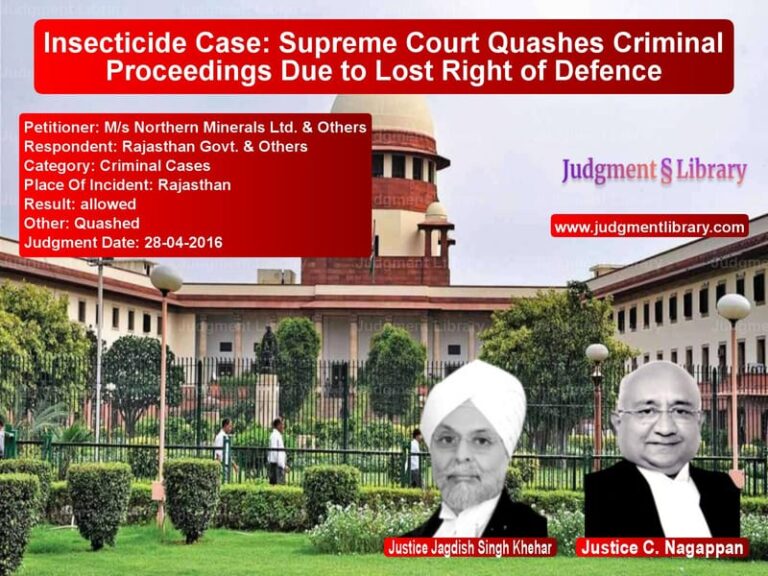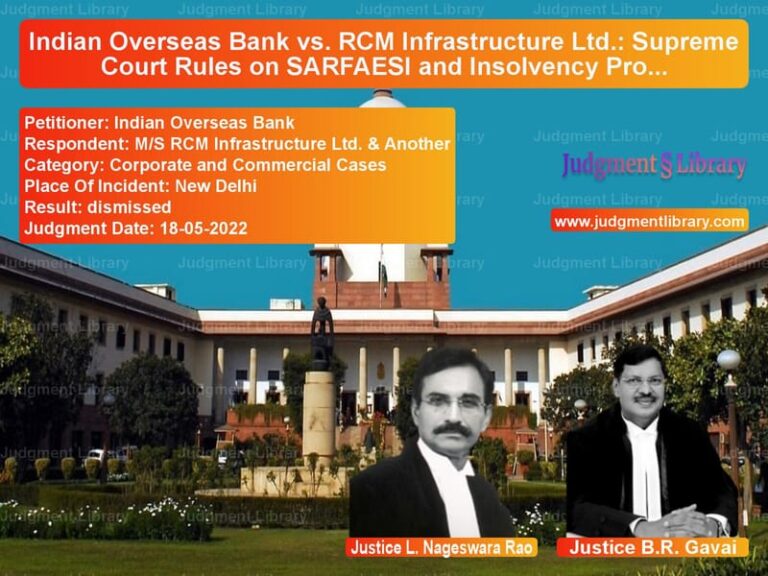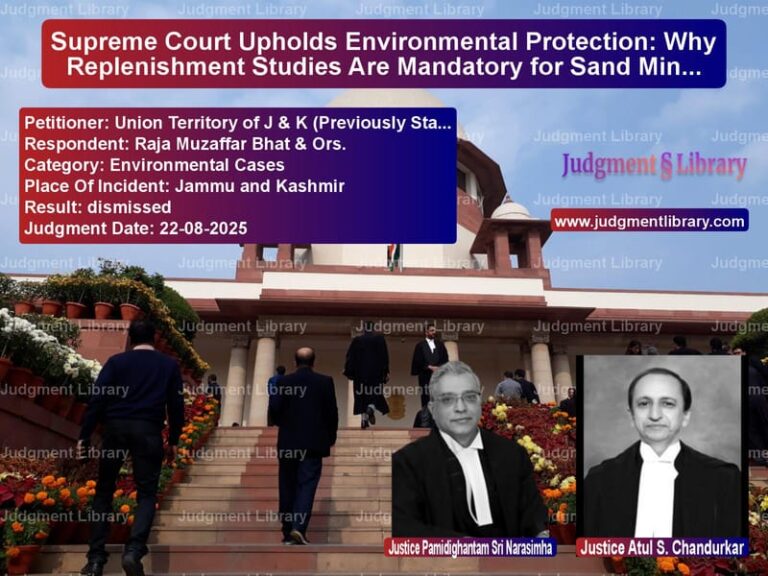Supreme Court Clarifies Eligibility of Promoters in IBC Resolution Process
The Supreme Court of India recently delivered a significant judgment in Hari Babu Thota v. Respondent(s), which addressed the eligibility of promoters to submit a resolution plan under the Insolvency and Bankruptcy Code, 2016 (IBC). The ruling clarified the applicability of Section 29A and Section 240A of the IBC, particularly in cases involving Micro, Small, and Medium Enterprises (MSMEs). The judgment sets an important precedent for insolvency proceedings and the rights of promoters.
Background of the Case
The case revolved around Shree Aashraya Infra-Con Limited, a company undergoing the Corporate Insolvency Resolution Process (CIRP) under the IBC. The appellant, Hari Babu Thota, was appointed as the Resolution Professional (RP) and presented a resolution plan before the National Company Law Tribunal (NCLT), Bengaluru.
The plan was proposed by the promoters and approved by the Committee of Creditors (CoC). However, the NCLT dismissed the application on February 28, 2023, on the ground that the promoters were ineligible to present the plan under Section 29A of the IBC. This decision had far-reaching consequences:
- The appellant was declared ineligible to continue as the Resolution Professional.
- He was disqualified from being considered as a liquidator of the corporate debtor.
- The case was referred to the Insolvency and Bankruptcy Board of India (IBBI) for further action.
Aggrieved by the NCLT’s order, the appellant approached the Supreme Court, seeking relief from the disqualification and a clarification on the application of Sections 29A and 240A of the IBC.
Legal Issues Examined
The Supreme Court examined two key issues:
- Whether the resolution applicant was disqualified under the primary conditions specified in Section 29A of the IBC.
- Whether the corporate debtor, lacking MSME status at the time of CIRP commencement, would disqualify the resolution applicant from benefiting under Section 240A of the IBC.
Petitioner’s Arguments
The appellant argued that:
- There were no outstanding bank dues that could classify the corporate debtor as a Non-Performing Asset (NPA).
- The resolution plan was legally valid since the promoters were not expressly disqualified under Section 29A.
- Under Section 240A, promoters of MSMEs are exempt from disqualification, and the MSME certificate was obtained before the submission of the resolution plan.
- The NCLT and the National Company Law Appellate Tribunal (NCLAT) misinterpreted the law by using CIRP commencement as the cut-off date instead of the resolution plan submission date.
Respondent’s Arguments
The respondent, represented by the government and financial creditors, contended:
- The promoters were ineligible under Section 29A as they had defaulted on loans, leading to the company’s insolvency.
- The MSME certificate was obtained after CIRP initiation, making the benefit of Section 240A inapplicable.
- The tribunal had correctly applied the law to disqualify the appellant.
Supreme Court’s Analysis
1. Interpretation of Section 29A
The Court analyzed Section 29A of the IBC, which disqualifies certain individuals from submitting a resolution plan. It observed:
“The objective was to prevent individuals responsible for financial distress from regaining control of the company without fulfilling obligations.”
The Court noted that the promoters in this case were not explicitly disqualified under any of the specified conditions.
2. Applicability of Section 240A
Section 240A exempts MSMEs from certain disqualifications under Section 29A. The Court ruled:
“If an MSME certificate is obtained prior to the submission of the resolution plan, the benefit of Section 240A cannot be denied.”
Since the MSME certificate was obtained before the plan submission, the promoters were eligible.
3. Cut-off Date for MSME Status
The Court rejected the argument that CIRP initiation was the cut-off date, clarifying that:
“The relevant date for MSME exemption under Section 240A is the date of resolution plan submission, not the CIRP commencement date.”
Final Judgment
The Supreme Court set aside the NCLT and NCLAT orders and ruled:
- The promoters were eligible to submit a resolution plan.
- The 7% pre-deposit requirement was unconstitutional and unenforceable.
- The appellant’s disqualification as Resolution Professional was revoked.
- The case was remanded to the NCLT for reconsideration of the resolution plan.
The ruling reinforces the rights of MSMEs under the IBC and ensures that the resolution process remains inclusive while upholding creditor interests.
Petitioner Name: Hari Babu Thota.Respondent Name: Respondent(s).Judgment By: Justice Sanjay Kishan Kaul, Justice Sudhanshu Dhulia.Place Of Incident: Bengaluru, Karnataka.Judgment Date: 28-11-2023.
Don’t miss out on the full details! Download the complete judgment in PDF format below and gain valuable insights instantly!
Download Judgment: hari-babu-thota-vs-respondent(s)-supreme-court-of-india-judgment-dated-28-11-2023.pdf
Directly Download Judgment: Directly download this Judgment
See all petitions in Bankruptcy and Insolvency
See all petitions in Corporate Compliance
See all petitions in Company Law
See all petitions in unfair trade practices
See all petitions in Mergers and Acquisitions
See all petitions in Judgment by Sanjay Kishan Kaul
See all petitions in Judgment by Sudhanshu Dhulia
See all petitions in allowed
See all petitions in Remanded
See all petitions in supreme court of India judgments November 2023
See all petitions in 2023 judgments
See all posts in Corporate and Commercial Cases Category
See all allowed petitions in Corporate and Commercial Cases Category
See all Dismissed petitions in Corporate and Commercial Cases Category
See all partially allowed petitions in Corporate and Commercial Cases Category







